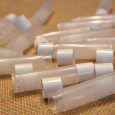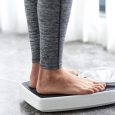The Lose Weight on a Low Carb High Protein Diet
Over the years, eating a low carb diet has grown in popularity, but what many of these low carb diets fail to include is how important it is to make sure that you have a high protein food intake.
Lowing your carbs isn’t enough for you to lose weight and keep it off for the long term. That’s because carbs and protein actually work together to achieve weight loss success and one without enough of the other simply doesn’t work.
The Protein-Carb Myth Busted
The focus of some low carb diets has always been to cut out anything that’s above a certain carb level – and that included protein. In fact, some protein foods were put in the “donot eat” category and strategically avoided.
Most people assume that by eating low carb, that they’re getting enough of their daily intake of protein. But many people aren’t – and that lack of protein is thwarting your weight loss efforts.
The reason your efforts have been thwarted is because you might have thought that by eating protein, you were eating high calorie, fattening foods. Most people don’t understand the nature of protein and how the body uses it.
The truth is that protein, while it does contain calories and some fat, isn’t high enough in carbs to blow a low carb diet when you’re counting calories or carbs. There are various types of protein that you can learn about so that you’ll know which ones to choose for the least amount of carbs.
More than half of all people on a low carb diet don’t get the amount of protein that they need. As a result of that, not only is their diet lacking nutritionally, but their health is suffering as well.
Without protein on a low carb diet, you lose energy and you can become sluggish – both physically and mentally. Over half of your calories on a low carb diet should come from protein.
This protein intake should focus on ones that are lean. Instead of getting at least 50-60% of their calorie and carb needs from protein, most people get 15% or less of their carbs and calories from it.
You might think that by eating more of the types of carbs found in meat and increasing your protein level that it will contribute to weight gain, but it’s the opposite.
Protein is a weight loss tool.Studies have shown that people whose low carb diets have a strong focus on protein lose weight faster, can prevent or reverse obesity, and also keep other health conditions at bay.
You have to understand what a carb is and how it can contribute to weight gain if you don’t make sure that you pair it with protein in your eating plan. But first, you need to take a look at how protein works to get you that lean body you’re aiming to have.
How Protein Works
Protein is a weight loss tool unlike any other food. When you focus your meals and snacks on high protein, the protein immediately gets to work in your body to contribute to muscle repair and weight loss.
Protein isn’t a food that digests fast. This is one of the reasons that you don’t feel as hungry as quickly after having protein. Your body has to make more of an effort to digest protein foods to put them to work for your body.
What that means for you (besides feeling fuller) is that your body is using calories during the digesting process. It’s using more effort to digest proteins than any low carb foods or diet foods.
If you need to know how that breaks down into a benefit for you, just take a look at the numbers. Research has shown that people on a low carb diet who add more protein take in about 500 less calories than those who don’t up their protein intake.
That equals about 12 pounds of additional weight loss over the course of three months – with you not doing anything except adding food. Most people on a low carb diet also add some form of exercise.
They believe it will speed up the weight loss effort. And they’re right. But if you’re not getting enough protein, you’re not losing fat. Instead, what you’re losing is muscle mass.
This is why you may have struggled on a low carb diet and been frustrated that you weren’t losing enough or gaining lean muscle like you wanted to. Without the amino acids in protein, you won’t be building lean muscles.
Low carb foods just don’t contain what your body needs. Not only that, but your metabolism will slow down when you don’t give your body the right amount of protein.
So if you’ve been on a low carb diet that’s also been pretty low in protein, it’s time to make some changes to how you’re eating so that you’ll see your weight loss kick into higher gear.
It’s important that you don’t protein load. That means trying to cram all of your protein into one meal. Not only is that not good for you, but you’ll be wasting the protein because your body can’t use it all at once and protein doesn’t store.
Divide the grams of protein you’re going to be adding to your eating plan by each meal as well as each snack. This keeps you in protein intake mode throughout the day.
It also helps you keep the munchies at bay this way. You have to have protein on a low carb diet from the time you get up to the time you go to bed – and especially after working out.
Study your proteins and make sure that they’re packed with all of the amino acids. The best way to make sure of that is by getting your protein from meat. Other proteins don’t contain all of the essential amino acids.
If you think that upping your protein intake means you’ll constantly be eating chicken or steak and you’re thinking you don’t have the time or energy to do that, there’s an easy way to get the amount of protein that works for you.
You can eat jerky, carry soy nuts or have an energy bar. You can also make a batch of boiled eggs that you can use to take with you when you leave the house to run errands or head to the office.
What a Carb Really Is
Carbs are made of fiber, sugar and starch and they’re in the foods that you eat. These macronutrients play an important role in how your body gets the energy that it needs.
Your body has to have carbs at a certain level or it can’t function. This is why people who cut their carbs too low experience things like dizziness or mental fog. The amount of carbohydrates that you have to have isn’t a magic number – nor is it a one size fits all number.
The level of carbs that you need to have on a low carb diet should be based on how much protein you’re also getting. This is because while protein should be a minimum 50% of your caloric food intake, carbs – including those in fruits and vegetables – should make up the remainder.
Both carbs and proteins keep your body running. They both help the body burn fat. When one is out of balance, you’re not going to get the same level of fat burning that you would if it was in balance.
Most people want to know if they should have simple or complex carbohydrates when they pair them with protein. What you should know is that carbs aren’t good or bad.
There are only two types of carbs: either simple or complex. Each type affects your body differently. When you eat a simple carb, your body gets the glucose from that carb faster while a complex carb doesn’t get absorbed as quickly.
The mistake that most people make is thinking that simple carbs are bad ones and complex carbs are good ones. But fruit is a simple carb. That’s because your body can quickly absorb the fructose form fruit just like it can in something like candy.
The main difference is that carbs that are simple ones that are processed are often void of any vitamins. They don’t offer anything nutritional for your body. When you’re deciding to eat a carb, you need to look at a few things to see if it fits on your low carb, high protein diet.
Look to see the calorie content. Now remember that some proteins have a higher calorie content than something like a piece of fruit. That doesn’t make the protein bad or on the donot eat list.
What it means is that you should look at all of the other qualifications first to decide if you want that carb or not. Besides the calorie content, look at the nutritional value.
Find out how many vitamins, minerals and other nutrients it has for your body. Make sure that the carb isn’t processed or refined. Look at the fiber content. Check out what the label says about the sodium amount.
You also want to look at the type of fat and the amount of fat. That’s one reason people avoid eating high protein, but most meats are high in the type of fat that’s good for you and good for your heart.
What you want to avoid on a low carb, high protein diet are foods that are high in calories but give you nothing in return. They don’t offer you much in terms of protein, fiber or nutrients.
They’re packed with sodium and saturated fat. The key to eating low carb, high protein is the fiber in the carbohydrate. The more fiber the food item has, the better it is for your body and the more it will be able to help you lose the weight you want to shed.
You can put together a low carb, high protein diet on your own or you can follow one of the more popular ones that has a focus on protein You can also adjust any popular diet to better suit your lifestyle and weight loss needs if you have to.
The Atkins Diet is one of the top diets you can follow when you want a diet that’s higher in protein. Another one is the South Beach Diet. There’s also the Abs Diet and some people prefer to follow Weight Watchers for a low carb, high protein diet.
But if you’re looking for a low carb diet that instructs users to have the most protein, then that one would be the Zone Diet. Keep in mind that a diet plan often has to be tweaked to suit the individual.
Reasons Why Your Diet Didn’t Work Before Now
You were so focused on watching the scale that you didn’t realize you were losing fat and building muscle. Because muscle weighs more, some people get upset when they step on the scale and see a weight gain rather than a loss.
Forget constant watching the scale and base how well your low carb, high protein diet is working on how you feel and how your clothes are fitting. You can often see that your clothes fit looser – even when the scale says that you’re gaining. It’s better to use a tape measure if you want to keep track, rather than a scale.
Another reason your diet didn’t work was because you didn’t manage your stress. When you’re stressed, your body kicks up the stress hormones. When that happens, it affects your appetite.
You become hungrier and you’re more likely to eat junk food when you’re stressed. Losing weight is actually a total mind-body process, not just a physical journey.
Maybe your diet didn’t work because the foods that you were eating on your diet were supposed to be low carb and good for you – but they were processed. They didn’t have the nutrients that your body needed and you ended up hungry all of the time, irritable and lacking energy.
You have to have real food on any diet. Even on a low carb diet, those carbs need to be real food and not processed ones. You’ll feel more satisfied this way and stick to your diet longer.
Perhaps you ate foods that were good for you, but had a high fat content. Fat content should be looked at. If a food has more than half the caloric intake in fat, then you can bet that’s a food you need to reconsider.
Is it possible that snacks derailed your diet? Even eating healthy foods on a diet can sabotage you if you eat too much of them. Some people on a diet switched from eating chips to nuts. While nuts are a much better choice, they’re not calorie or fat free.
Maybe you switched from real sugar to sweeteners. While eliminating sugar might seem like a no-brainer, eating fake sweeteners can actually be just as bad for you.
The reason is that even calorie free foods can increase your appetite. Some sweeteners make people feel hungrier, not less – and this leads to overeating. So watch how much artificial sweetener you use, if any. If you were eating low carb in the past but still struggling to lose weight, the sweeteners could be the reason why.
If you didn’t reach your weight loss goals in the past, it could be that you were focused on a low carb diet without the proper amount of protein. The two work hand in hand.
When you have enough protein in your system and your body feels fuller, you’re not going to crave as much food – which in turn means fewer carbs, and less desire to snack.
There’s a formula for figuring out how to balance the amount of carbs plus protein you need in order to lose weight and keep it off. Decide whether or not the low carb amount is making you lose weight – because some people need more or fewer carbs than others.
Make sure your protein intake is at least 50% of your calories and take into consideration any health conditions you might have because some health conditions, such as diabetes, can make eating even a small amount of carbs more difficult to lose weight.
There are many options on the market to help you shed pounds and build lean muscle mass. Low carb with high protein is just one option. You may even find that you want to switch things up from time to time to prevent boredom and give your body a shock so that it can’t become complacent with its weight loss.
As for the low carb, high protein selections, you’ll find everything from “under 100 carbs” per day to under 20 carbs – to zero carbs. You’ll have to decide which works best for you, and which one you feel comfortable adhering to.
Recommended Products For Dieting and Protein











































